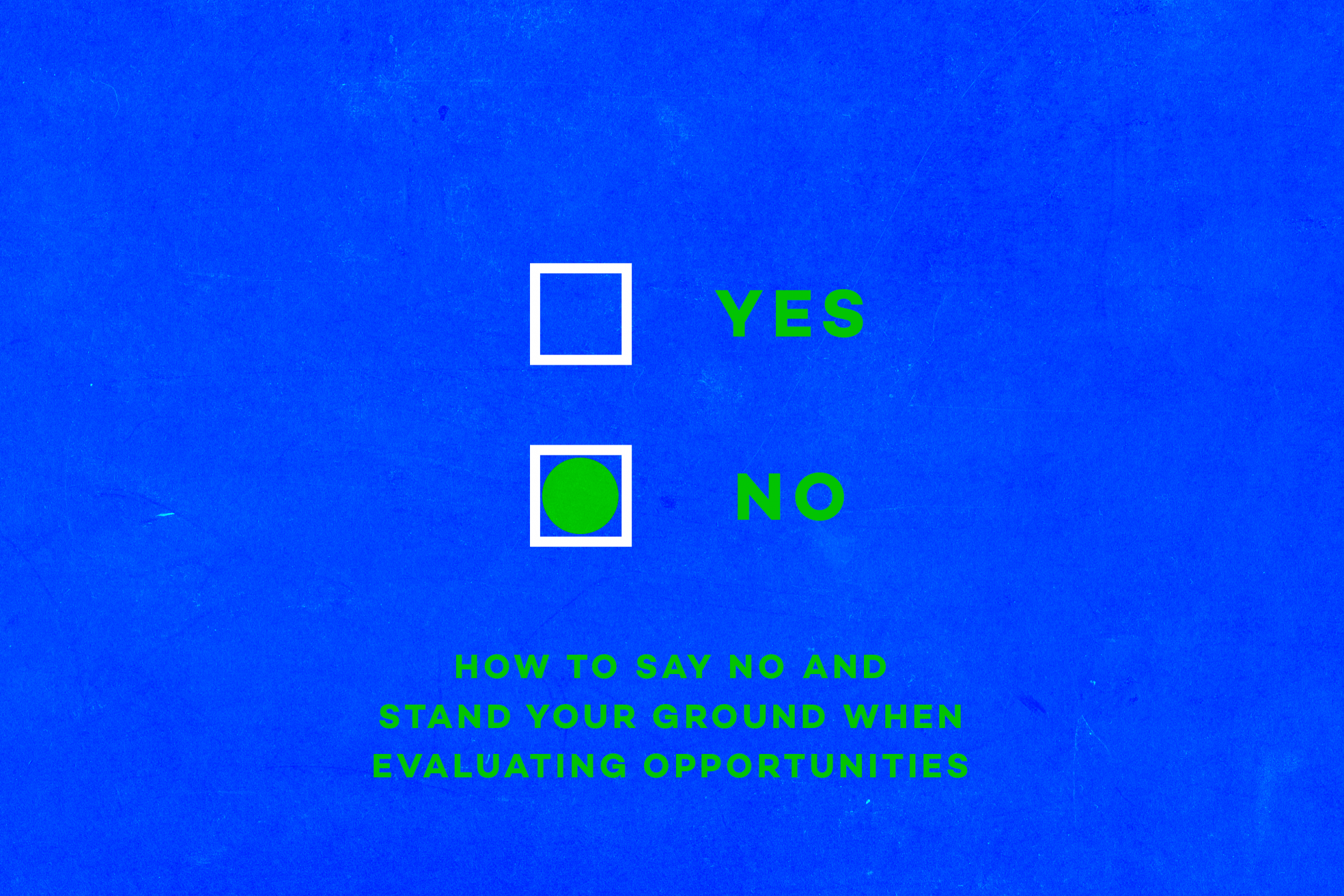 Comment
Comment
How to say no and stand your ground when evaluating opportunities
It's important to know and respect your boundaries
Becoming successful and achieving success is hard work. There are a lot of unseen pressures that come with becoming a success in music: the scene is demanding and constantly changing; you feel like you have to give it your all in order to stay on top; you don't want to disappoint your family, friends and fans. There are no set plans or boundaries for a career in music, and sometimes, it feels necessary to keep on going until you can't anymore.
The entire music industry saw this story come to an irreversible and tragic head with Avicii, who took his own life in April of 2018. The news shook people to their core. "How has the music industry learned from Avicii's death?" Mixmag questioned. Even today, it's difficult for artists to stand their ground and learn how to say no, or take a break. There's too much fear of losing momentum, especially in an industry as fast-paced as electronic music.
It's easy to understand, but ignoring an impending burnout could mean your ultimate demise with your own success. As a creative, it's vital to learn and protect your boundaries before reaching a downward spiral that could leave you in bad mental or physical conditions to continue on with your passions. As a manager, it's mandatory to keep a close eye on your artist and remember that they are a human being, not a machine.
Before becoming familiar with your boundaries, it's important to know who you are and acknowledge what your norms and values are.
Ask yourself:
Who are you and who do you want to be?
What are your needs?
What life and lifestyle do you want?
Then, you can begin to evaluate opportunities that come your way with a clearer mindset. With every choice, consider your health, the pros and the cons, and ask yourself:
Does this opportunity match my norms and values?
Does it inspire me? Does it give me energy?
Will it fit into my schedule, or will I have to struggle to fit it in?
Does it pay the bills, or will it cost me?
What will I get out of this opportunity?
Am I sure this isn't a case of FOMO?
While you should always strive for balance, know that it won't always be a 50/50 split with opportunities that come your way, but be aware of your boundaries (both physical and mental), and be realistic about recovery and self-care time. An example I use is as an artist, if you were asked to headline a huge, well-known festival, but were just coming off of a long, exhausting tour run... how would you asses this opportunity? You would have to take an honest look at the opportunity and ask yourself a couple things. Do you want to perform, and why? How is your health holding up? Could you take the necessary time afterwards to connect with yourself and get rested?
Only you can decide what your boundaries are, and if an opportunity is worth crossing them.
As you progress as a professional artist, your bookings will eventually be handled by representatives. While you may no longer have to evaluate the opportunity yourself when it's presented, it's important to convey your interests and priorities with your team to ensure that you do not become seen as simply a product rather than a human being.
If you find yourself needing to be assertive in a situation, keep in mind what you want and what your needs are without behaving passively or aggressively.
Know clearly what you need and what and make eye contact. Listen to others without disrupting them, and when it is your turn to speak, talk at a confident volume. In order to say no with confidence, you will need to respect yourself and your needs.
Allow yourself to be open to hearing the other side, and let the other person finish communicating their ideas. This gives you the opportunity to think about your own answers, or ask more questions.
Think about what you truly want, and why. Feel comfortable saying that you need time to think before answering, and come back when you feel ready. It's not always easy to say "no", especially if you feel the pressure of needing to answer immediately. Don't be pressured into saying "yes".
Try to keep a cool head. Ignoring the other person, shouting or making threats are all examples of what to avoid. Stay calm and in control, which in turn will help you stay rational in your thinking.
Don't be afraid to be a little selfish, and think less about other people and more about yourself. When coming to an answer, let go of thoughts like: "What will he/she think of me?" or "He/she will get mad." Remember what is important: your own boundaries and feelings.
Remind yourself that you can't always make everyone happy, but most times, honesty is the best policy. If you want to say no, then say so without lying about the reasons. In other instances, you also don’t have to feel obligated to explain why you’re saying “no”.
Say "no" when you need it. It might not be easy at first, but practice makes perfect.
Fenny Nadorp is an entertainment and creative industry life coach, trainer and speaker based in The Netherlands. Find her on Instagram here and contact her at hello@fennynadorp.com.
Read this next!
How to avoid becoming overwhelmed by loneliness
How to stay strong in the face of negative comments
Social media is dangerously affecting DJs' mental health


